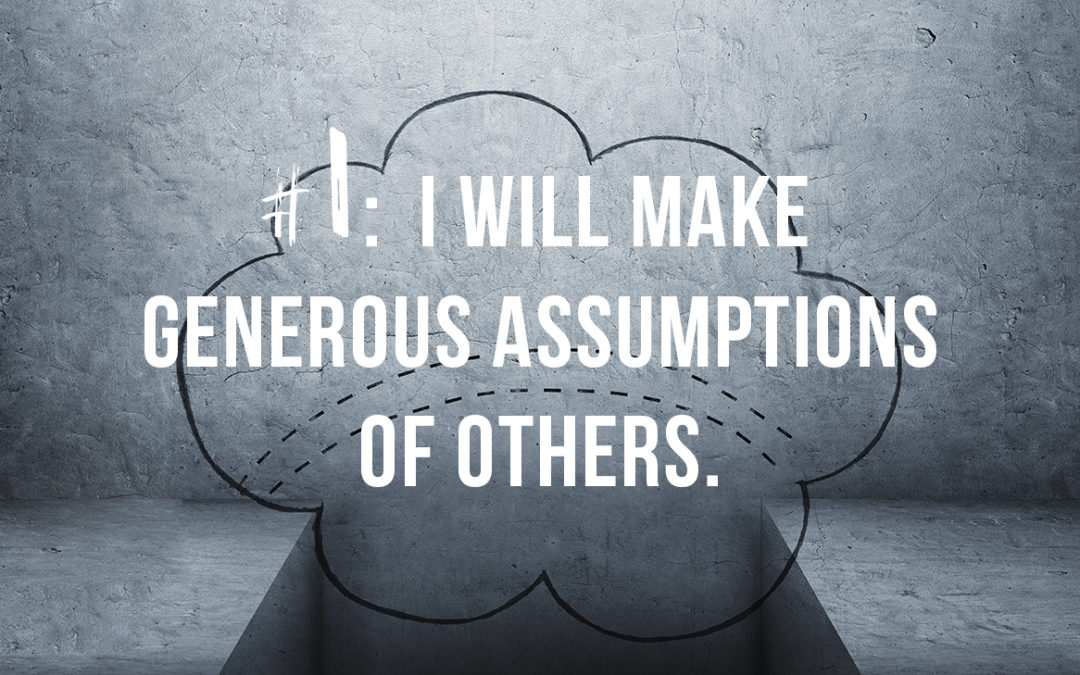As we approach the conversation on the racial divide and we want to hear clearly, we must begin with generous assumptions. Making generous assumptions means we enter the conversation with an empty notepad. It means not creating a narrative based on a storyline that we have already played out, assuming we know another’s motives and why they do what they do.
In the conversation on the racial divide it allows me to listen to hear and understand.
Generous assumptions mean if we hear someone say they are scared of the police, we take it as that – they are scared. We wouldn’t want people to be scared. Generous assumptions would also mean assuming that the police would want to be safe and trusted as they serve. As we hear someone say they want the same opportunities for their kids, we take it as that, and we would want opportunities for their kids too. As stories of ancestors are shared, generous assumptions allow us to listen, to hear with empathy, to hear someone’s history as, “This is my story,” not assuming they are saying, “You did this to me.”
Generous assumptions give us the space to listen because we haven’t filled the room with our thoughts, opinions, solutions and assumptions of “where this is going.” It’s not being naive, but it’s being willing to to enter the room empty handed and willing to consider something new. Generous assumptions allow us to hear.
We assume that we are all trying to come together. We assume that healing the divide in our nation means moving forward in understanding. We assume that we all want what is best for all. We assume that none of us want to take advantage of each other. We assume we all want what is best for future generations and our nation. We assume we are all willing to listen to make it happen.
For years, these issues have remained unchanged because our assumptions have kept us from hearing. As we approach the conversation, let’s make generous assumptions and see where that may lead our understanding.
HLLF,














